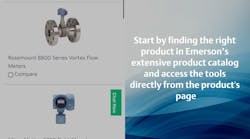Agar Corporation Inc. (ACI), a Houston-based manufacturer of flowmeters and related parts, pleaded guilty to violating the International Emergency Economic Powers Act (IEEPA) and agreed to pay $2 million to the United States, admitting the corporation facilitated the manufacture of multiphase flowmeters (MPFM) by a foreign affiliate for export to the Sudan in violation of IEEPA and the Sudanese Sanctions Regulations.
Per the terms of the plea agreement, the corporation agreed to pay a total of $2 million in criminal fines, forfeiture and civil penalties and serve a four-year-term of probation during which it is to institute a compliance program specifically designed to ensure no further violations of United States law will occur. In addition, ACI will be required to hire an unaffiliated third-party consultant with expertise in U.S. export control laws and sanctions regulations to conduct external audits of ACI’s compliance with U.S. export control laws and sanctions regulations with respect to all exports or re-exports to sanctioned countries.
ACI has a number of foreign affiliates. It was through their Venezuelan affiliate, Agarcorp de Venezuela (ADV), that ACI illegally facilitated the export of 16 MPFMs to Sudan for use in the Melut Basin oil field. ACI’s assistance to and facilitation of its foreign affiliate, ADV, in the manufacturing of MPFMs for the purpose of exporting them to Sudan was subject to the Sudanese Sanctions Regulations.
President William Jefferson Clinton signed Executive Order 13067 on Nov. 3, 1997, prohibiting certain individuals and entities from transacting directly or indirectly with Sudan. This order has been continuously extended each subsequent year by the president. Executive Order 13067 specifically finds that "the policies and actions of the Government of Sudan, including continued support for international terrorism; ongoing efforts to destabilize neighboring governments; and the prevalence of human rights violations, including slavery and the denial of religious freedom, constitute an unusual and extraordinary threat to the national security and foreign policy of the United States," and declared a national emergency to deal with that threat. Executive Order 13067 has been continued by the president each successive year and imposed economic sanctions, including a trade embargo on Sudan and prohibited, among other things, transactions with Sudan.
Specifically, the Executive Order prohibited the exportation or re-exportation, directly or indirectly, to Sudan of any goods, technology (including technical data, software or other information) or services from the United States or by a United States person, wherever located, or requiring the issuance of a license by a federal agency, except for donations of articles intended to relieve human suffering, such as food, clothing and medicine. Also specifically prohibited is the facilitation by a United States person, including but not limited to brokering activities, of the exportation or re-exportation of goods, technology or services to Sudan from any location. The Executive Order’s definition of a "U.S. person" includes a corporation organized under the laws of the United States (including foreign branches).
Although it was made to appear that ADV alone was building and exporting the MPFMs to Sudan, ACI still provided assistance and technical support for the design and construction of the 16 MPFMs. ACI sold and caused to be shipped to ADV from the United States certain component parts needed for the manufacture of the MPFMs. ACI assisted ADV in purchasing MPFM component parts from ACI’s United States suppliers and fabricators by acting in a coordination capacity between ADV and the suppliers and fabricators, and also assisted ADV with the engineering drawings needed to procure the parts from the U.S. fabricators and to assemble the various parts into the 16 MPFMs destined for Sudan. In addition, ACI helped with the arrangements for the letters of credit for MPFMs manufactured by ADV for end use in Sudan. ACI exported seven shipments of the component parts ordered from the United States vendors to ADV in Venezuela on or about April 22; May 9, 13 and 27; and June 3 and 27, 2005. These shipments originated in Houston prior to their export to Venezuela. ACI was aware that ADV would incorporate these parts into MPFMs for export to Sudan.
ACI also sold MPFM proprietary components directly to ADV for the Melut Basin Project. Beginning in or about June 2005, the proprietary components were shipped by ACI or under its direction from Houston through Miami, Fla., to ADV in Venezuela. Once ADV completed the assembly of the MPFMs and concluded all necessary testing of the completed MPFM, the assembled parts were re-exported to the Republic of Sudan for use in Melut Basin project.
The criminal investigation leading to the charges and conviction and sentence detailed here was conducted by Immigration and Customs Enforcement’s Counter Proliferations Group. The Office of Foreign Assets Control participated in the resolution of this case through a settlement agreement whereby the civil penalties imposed today are to be paid by ACI. Assistant U.S. Attorney Melissa J. Annis prosecuted the case.
Eric McClafferty directed Flow Control magazine to this story. McClafferty is a partner with Kelley Drye & Warren LLP’s international trade practice. He is willing to speak confidentially with prospective clients about potential compliance concerns without any obligation. He can be reached at [email protected].
Continue Reading
Continue Reading
Sponsored Content

